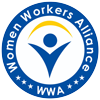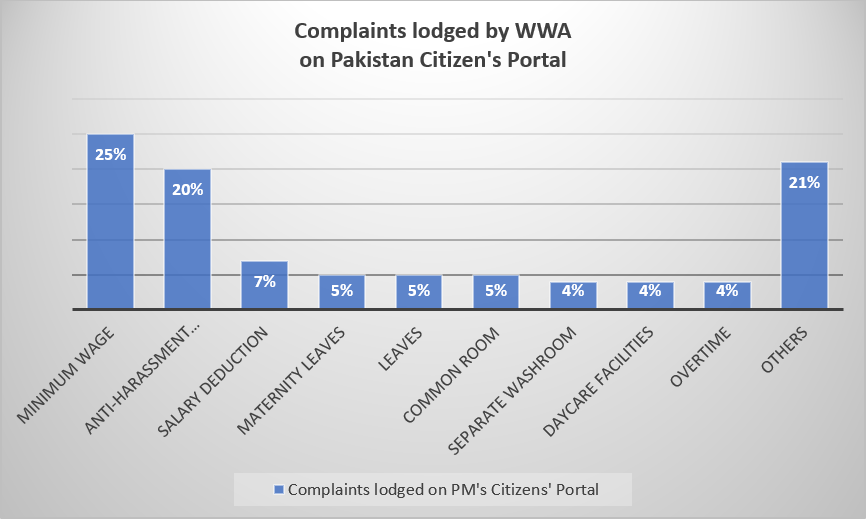In a landmark achievement, WWA Lahore chapter has formally registered itself as one of a kind, women-led and all women member union named “Women Workers Unity”. Members of other districts of Punjab are in the process of registering themselves with Women Workers Unity. WWA Peshawar and Quetta have also initiated the registration process in their respective provinces. All district alliances are aiming to eventually register themselves and emerge together as a federation of women workers’ unions across Pakistan.
Since its formation, the WWA has improved its collective understanding of labour rights, developed leadership and advocacy skills and increased awareness of labour rights among women workers at a larger level. It has been instrumental in initiating a provincial and national discourse on rights of women workers by highlighting the issues at workplaces that are specific to women as well by pointing out the legal and administrative lacunas that exist in gender neutral regime of labour rights. WWA was the first to point that the two of the seven fundamental conventions of ILO specific to discrimination in occupation and equality of wages (C-100 and C-111) that are ratified by the Government of Pakistan are the only conventions with no or insufficient legal provisions in the provincial and federal labour laws. As a result of WWA’s engagements, the KP Assembly amended the Shops & Establishment Act 2013 and removed a discriminatory clause in the law that prohibited women workers from evening shifts. The law further required the provision of transport to women workers from the employers after 7 pm. Furthermore, the elected representatives from Khyber Pakhtunkhwa (KP) assembly raised questions regarding the availability of separate washrooms for health sector women workers and the provision of minimum wage to women workers without discrimination in KP. Similarly, the elected representative from Punjab Assembly raised question regarding provision of protection against harassment at workplace committees in public offices in Punjab. The labour departments responded to the demand for gender sensitive labour governance and issued notices for establishment of protection against harassment committees to as many as 40 factories.
On the administrative spectrum of labour governance WWA has been able to bring about positive changes including but not limited to the provision of minimum wage in the garment retail sector, formation of anti-harassment inquiry committees at hospitals, schools, factories, etc., allocation of separate washrooms and daycare at factories and other public and private institutions.
One of such successes is the story of Ms. Rabia Chohan, a garment factory worker in Karachi, who raised voice for separate washrooms, faced termination from job as a result, fought relentlessly for her rights with other workers mobilized by her at the factory and got her position back along with separate washrooms allocated for women workers. Another example is of Tasleem Akhtar who took lead in establishing an anti-harassment inquiry committee at her workplace by mobilizing her co-workers. Similarly, Shireen Soomro, a lady health worker sought help from WWA against harassment by her supervisor and got anti-harassment committees established, filed her case with the committee and got justice. Women workers also lodged complaints on Pakistan’s Citizens Portal and got relief in majority of the cases, while a few are under process as shown in the figures below.


